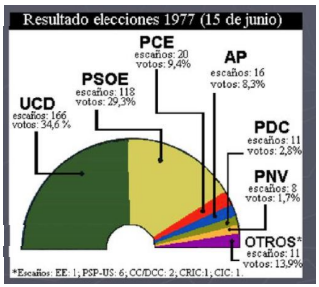Estimados alumnos,
A continuación, podéis encontrar un resumen de la propuesta de investigación sobre las distintas creencias en las distintas sociedades. Seguimos investigando sobre las características de cada una de ellas.
El Budismo
1. ¿Qué es budismo?
2. ¿En qué se caracteriza?
3. ¿Qué es el Karma?
4. ¿Qué es la reencarnación?
5. Ética budista
6. ¿Quién fue Sidharta Gautama?
a) ¿Por qué se rapó?
7. Tipos de budismo
El Anglicanismo
1. ¿Qué es el anglicanismo o Iglesia Anglicana?
2. ¿A qué se refiere el anglicanismo?¿Cuál es el origen del “Anglicanismo” o “Iglesia Anglicana”?
3. Características y/o Principios de la Iglesia Anglicana
4. ¿Qué le ocurrió a Enrique VIII?
5. Diferencias entre la iglesia anglicana y la iglesia católica.
Hinduismo
1. ¿Qué es el hinduismo?
2. ¿Cuáles son sus elementos fundamentales?
3. ¿Cómo lo conciben sus practicantes?
4. ¿Quién es el fundador del hinduismo?
5. ¿Cuáles son las características del hinduismo?
6. ¿Cuáles son las principales creencias del hinduismo?
7. ¿Cuáles son las doctrinas del hinduismo?
8. ¿Cuál es el origen del hinduismo?
9. ¿Qué libros sagrados podemos encontrar en el hinduismo?
10. ¿Quiénes son los dioses del hinduismo?
EL ISLAM
1. ¿Qué es el Islam?
2. ¿Cómo se llama a los creyentes del Islam?
3. ¿Qué significa que el Islam es monoteísta?
4. ¿Cuáles son los 5 pilares fundamentales del Islam?
5. ¿Qué es el Corán? ¿Cómo lo consideran los musulmanes?
6. ¿Cómo se llaman los templos del Islam?
7. ¿Cuáles son los 3 tipos de prendas tradicionales usadas por las mujeres?
8. ¿Por dónde se extendía el imperio conquistado por los sucesores de Mahoma? ¿Qué nombre reciben estos jefes políticos?
9. ¿Qué significa la palabra Islam?
10. ¿Cuáles son las 3 religiones monoteístas actuales que creen en la existencia de un único Dios?
JUDAÍSMO
1. ¿Qué es el judaísmo?
2. ¿Cuál es el Dios del judaísmo? ¿Qué pacto se realizó con el pueblo?
3. ¿Cuál es la ley del judaísmo y en qué consiste?
4. ¿Hay templos en el judaísmo? ¿Para qué sirven?
5. ¿Cuál es el origen del judaísmo?
6. ¿Qué surgió de Jacob?
7. ¿Cuándo surge el reino de Israel?
8. ¿Qué fue el holocausto? ¿Qué ocurrió después?
9. ¿Cuál es el símbolo judío?
10. ¿Cuáles son algunos de los fundamentos del judaísmo?
Cristianismo
1. ¿Qué es el cristianismo?
2. ¿Cuál es su base o fundamento?
3. ¿Cuáles son las mayores iglesias y tendencias cristianas?
4. ¿Cómo surgió el cristianismo? ¿Cuál es su libro sagrado?
5. ¿Qué ocurrió con el edicto de Milán? ¿Qué significó el edicto de Tesalónica?
6. Menciona 5 características del cristianismo
Catolicismo / Iglesia católica
1. ¿Qué es el catolicismo?
2. ¿Por quién fue fundada?
3. ¿Cuál es su misión principal?
4. ¿De dónde viene la palabra iglesia y qué significa?
5. ¿Qué significa católica? ¿En qué se diferencia de otras iglesias cristianas?
6. ¿Dónde se encuentra la sede de la Iglesia Católica?
7. ¿En qué aspectos se basa la doctrina de la Iglesia católica?
8. ¿Cuáles son algunos de los acontecimientos más relevantes de la historia de la Iglesia Católica?
9. ¿La institución de la iglesia católica está compuesta?
10. ¿Quién es la cabeza la institución de la Iglesia?
11. ¿De qué se encargan los obispos y quiénes les ayudan?
12. ¿Cómo es la organización territorial de la iglesia?
















